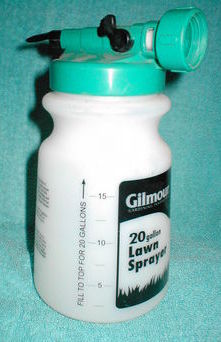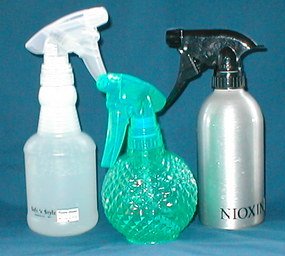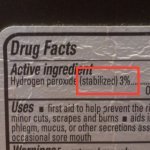Cat Abscess Treatment - options and thoughts about cat abscesses
I've learned about cat abscess treatment from taking care of cats. Cats can be prone to abscesses, particularly under the chin and on the neck. I know a cat who seems prone to getting infected cuts, in general – including some that have closed over into an abscess, and some that did not. I expect some cats are more prone to infections and abscesses than others. To begin with, cats who are outdoors are surely more likely to get into fights and get cuts….
In a cat, an abscess is generally starts with getting in a fight, and getting scratched or wounded by another cat, or some other animal.
I have treated cat abscesses, and infected open cuts on cats, and also non-infected cuts on cats with hydrogen peroxide. I have used both liquid 3% hydrogen peroxide, and “sticky” hydrogen peroxide gel (1% to 3%) for cat abscess treatment. In addition I’ve also used ozonated olive oil. Both peroxide gel and ozonated olive oil have worked exceptionally well, but the cats involved hate the stuff. (Not that I blame them – both of these things are wet, peroxide gel stings, ozonzted olive oil tastes horrid, and anything that sticks on one’s fur is…. um… rather demoralizing…... )
This page talks more about the details of how I've used hydrogen peroxide for cat abscess treatment...... There are 2 general steps: opening up the abscess, and then keeping it clean and drained.
Let’s back up a little:
What is an abscess?
An abscess is an infection that is closed off, inside the body. In most cases, a cat abscess starts out as a surface cut that gets infected – the skin heals over, but somehow the infection continues. Now it is closed off, inside. If the body is not able to clean up the infection, then an abscess is the result. Being closed off, the infection can fester, and can cause pressure, heat, and also stress on the immune system.
A cat can have a small abscess for a long time without it being noticed. That can be a problem! A small abscess may be hard to notice or find. As the situation goes on longer, though, or if the infection gets worse, the cat may seem ill, or you may notice a swollen area, or you may find an area where the cat feels pain and unusual sensitivity.
An active abscess will get very sensitive. The more infection and fluid there is held this little pocket, the more sensitive it will get. As infection increases, there is more fluid, and more pressure. The whole area will be sensitive – a cat is not going to be happy with having it poked at.
As an abscess grows or continues, it is a strain on the whole body. The immune system is working hard to try to fight the infection, and the cat may begin to look and feel ill.
Also, my description here of an abscess is talking about a surface cut that becomes infected, and abscessed. There are also such things as deep internal abscesses that can form after surgery, or abscesses that are deeper in the body due to internal infection for any reason. This is quite a different situation, as the infection is deeper, not just below the skin. The general idea that an abscess is a closed-off pocket of infection applies, and the idea that it needs to be opened to drain, and it needs to be disinfected applies. But how to accomplish this would be quite different, and I would certainly go to a doctor or veterinarian in such a case, as I don’t have any idea how to go about this!
If the situation warrants going to a vet, by all means do so. Vets are very experienced at cat abscess treatment!
If you are not going to go to a vet, then using hydrogen peroxide will at least help – how much it will help depends upon the state of the wound, how long you keep the peroxide on the wound, the state of the cat’s immune system, and possibly other things.
No one can say how serious an abscess is without seeing it. Even someone seeing the abscess who is very experienced with treating abscesses may not know exactly how it needs to be treated. It’s hard to know how well an infection will respond. I’ve seen big improvements in a day, and that it is important to keep on top of whether the wound is getting better or worse.
By the way, hydrogen peroxide will not kill bacteria that that it is not in direct contact with – putting it on a closed up abscess will not do anything. It needs contact to kill bacteria. Actually, it needs contact for a period of time, to do its work.
Caution
- Hydrogen peroxide should NOT be used on deep wounds, or any wound that is not OPEN.
Cat abscess treatment at the vet
I’ve looked at some vet websites for information about cat abscess treatment. They talk about evaluating the abscess, as some abscesses will heal without being reopened. The vet might use injected or oral antibiotics in this case. If the abscess is more serious, the vet would surgically reopen the wound, so that the infection (pus and fluid) can be drained out, and the area is open to air. (It needs to stay open for a while). In some cases this is done under anesthesia.
Actually, I’ve taken cats to the vet for abscesses. Years ago I had a cat who got a couple of neck abscesses, so I got to see cat abscess treatment with a vet, too.
I remember having a plastic syringe and having to squirt a liquid antibiotic into the wound, and keep it open.
Abscesses can be pretty serious, so going to the vet is certainly a reasonable option, and the safer choice.
Return from cat abscess treatment options and ideas to skin infections page
Return to uses for hydrogen peroxide for animal careSubscribe to Hydrogen Peroxide Explorers' Newsletter
Our newsletter will keep you up to date on new pages added, plus some Adventures you can try at home:
No worries! Your email will be used ONLY to send you newsletters.
(Gallon):
(5 pounds):
For some links, I receive ad commissions, at no cost to you. More info here.
Site Search:
Subscribe to our newsletter (free):
Note: Products shown are sold by Amazon. This site does NOT sell hydrogen peroxide.
Do you like this site?

Gardening: attach sprayer to garden hose; use to dilute peroxide and spray on the garden

Spray bottles for peroxide




